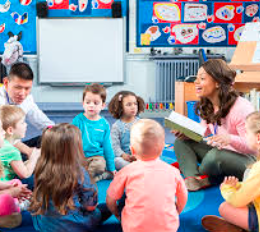Confidence is a powerful tool that shapes a child’s ability to grow, learn, and take on new challenges. In early childhood, helping children build a sense of self-worth through learning experiences can set the stage for lifelong success. With the right support, children not only develop academic skills but also grow more assured in their abilities and decisions.
The Connection Between Learning and Confidence
When young children explore, ask questions, and succeed at small tasks, they begin to understand their capabilities. Simple achievements—like recognizing letters, solving a puzzle, or tying their shoes—give children a sense of accomplishment. These moments build internal motivation and encourage them to try new things without fear of failure.
Encouraging a Positive Learning Environment
A supportive learning environment helps children feel safe to express themselves. Teachers and caregivers can nurture this by celebrating effort, not just results. When a child hears “I love how hard you worked on that!” rather than only “You got it right,” they learn that trying is just as important as achieving. This approach fosters resilience and persistence.
Learning Through Play and Exploration
Play is one of the most effective ways to help children gain confidence. Whether it’s imaginative storytelling, building with blocks, or experimenting with paint, play gives children the freedom to test ideas and discover their strengths. Activities that encourage problem-solving, creativity, and teamwork help children recognize their value in group settings and grow more confident socially.
Setting Realistic Goals and Celebrating Growth
Children feel more confident when they see progress in their learning. Setting small, achievable goals helps them stay motivated and builds a sense of direction. For example, learning one new word a day or mastering a new song can be cause for celebration. These positive reinforcements show children that every step forward counts.
The Role of Supportive Adults
Parents, teachers, and caregivers play a key role in building a child’s confidence. Encouraging words, patient guidance, and consistent routines provide a stable foundation. When adults model a positive attitude toward learning and mistakes, children are more likely to embrace learning without fear.
Conclusion
Helping young children build confidence through learning doesn’t require big achievements. It happens in daily moments—through kind words, playful exploration, and the joy of trying something new. By creating an encouraging environment and celebrating each step of progress, we empower children to grow into curious, capable, and confident learners.


